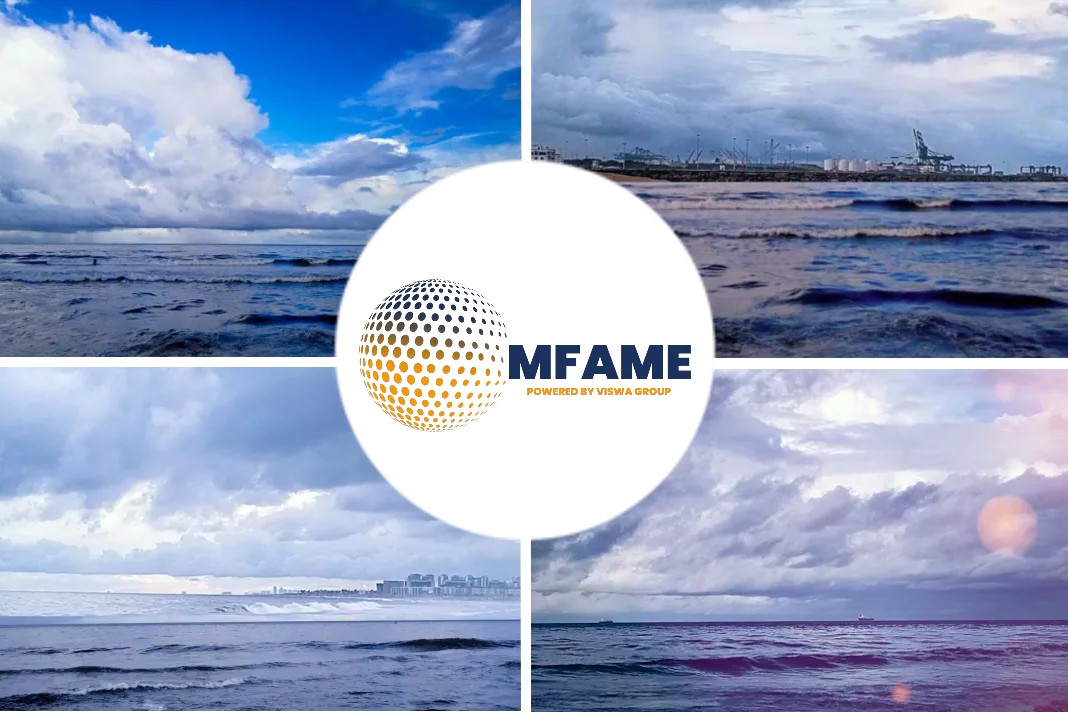Genco Shipping & Trading Limited (NYSE:GNK) (“Genco” or the “Company”), today announced that it has entered into an initial framework to jointly study the feasibility of ammonia as an alternative marine fuel as part of the objective to decarbonize the global shipping industry in-line with the targets established by the International Maritime Organization (“IMO”), saya a press release published on their website.
Reduction of greenhouse gas
Including Genco, a total of 23 companies to date have elected to participate in the study ranging from miners, shipbuilders, shipowners, class societies and power utility companies among others.
The IMO adopted a strategy for the reduction of greenhouse gas (“GHG”) emissions within the maritime industry which established targets to reduce CO2 emissions per transport work, as an average across international shipping, by at least 40% by 2030 (compared to 2008 levels), to reduce GHG emissions by 50% by 2050, and to phase them out entirely (zero-emissions) during this century. In order to achieve these goals, the early adoption of ammonia as a suitable zero emission, alternative marine fuel is one of the key elements.
Joint study
John C. Wobensmith, Chief Executive Officer, commented, “Taking steps to decarbonize our essential industry is a critical objective for Genco, and we are pleased to have entered into this joint study together with various blue chip, multi-national companies throughout the maritime supply chain. While there remains quite a bit of work to be done, not only on the development of ammonia fueled vessels but also on the build out of bunkering infrastructure, this joint study is an important and much needed step for the industry. Genco maintains a long-term commitment to reducing emissions and operating our fleet in an environmentally efficient and sustainable manner, and we are proud to participate in this meaningful study.”
About Genco Shipping & Trading Limited
Genco Shipping & Trading Limited transports iron ore, coal, grain, steel products and other drybulk cargoes along worldwide shipping routes. Capesize vessels represent our major bulk vessel category and the other vessel classes, including Ultramax and Supramax vessels, represent our minor bulk vessel category. Our major bulk vessels are primarily used to transport iron ore and coal, while our minor bulk vessels are primarily used to transport grains, steel products and other drybulk cargoes such as cement, scrap, fertilizer, bauxite, nickel ore, salt and sugar. This approach of owning ships that transport both major and minor bulk commodities provide us with exposure to a wide range of drybulk trade flows. As of June 11, 2021, Genco Shipping & Trading Limited’s fleet consists of 17 Capesize, nine Ultramax and 14 Supramax vessels with an aggregate capacity of approximately 4,368,000 dwt and an average age of 10.3 years.
“Safe Harbor”
This release contains forward-looking statements made pursuant to the safe harbor provisions of the Private Securities Litigation Reform Act of 1995. Such forward-looking statements use words such as “anticipate,” “budget,” “estimate,” “expect,” “project,” “intend,” “plan,” “believe,” and other words and terms of similar meaning in connection with a discussion of potential future events, circumstances or future operating or financial performance. These forward-looking statements are based on our management’s current expectations and observations.
Forward Looking Statements
Included among the factors that, in our view, could cause actual results to differ materially from the forward looking statements contained in this report are the following:
(i) our financial results for the year ending December 31, 2021 and other factors relating to determination of the tax treatment of dividends we have declared;
(ii) the financial results we achieve for each quarter that apply to the dividend formula described above, including without limitation the actual amounts earned by our vessels and the amounts of various expenses we incur, as a significant decrease in such earnings or a significant increase in such expenses may affect our ability to carry out our new value strategy;
(iii) the exercise of the discretion of our Board regarding the declaration of dividends, including without limitation the amount that our Board determines to set aside for reserves under our dividend policy;
(iv) our ability to refinance and amend the terms of our credit facilities as contemplated under our new value strategy; and
(v) other factors listed from time to time in our filings with the Securities and Exchange Commission, including, without limitation, our Annual Report on Form 10-K for the year ended December 31, 2020 and subsequent reports on Form 8-K and Form 10-Q.
Various Factors
Our ability to pay dividends in any period will depend upon various factors, including the limitations under any credit agreements to which we may be a party, applicable provisions of Marshall Islands law and the final determination by the Board of Directors each quarter after its review of our financial performance, market developments, and the best interests of the Company and its shareholders.
The timing and amount of dividends, if any, could also be affected by factors affecting cash flows, results of operations, required capital expenditures, or reserves. As a result, the amount of dividends actually paid may vary. We do not undertake any obligation to update or revise any forward-looking statements, whether as a result of new information, future events or otherwise.
Did you subscribe to our daily newsletter?
It’s Free! Click here to Subscribe!
Source: gencoshipping
















